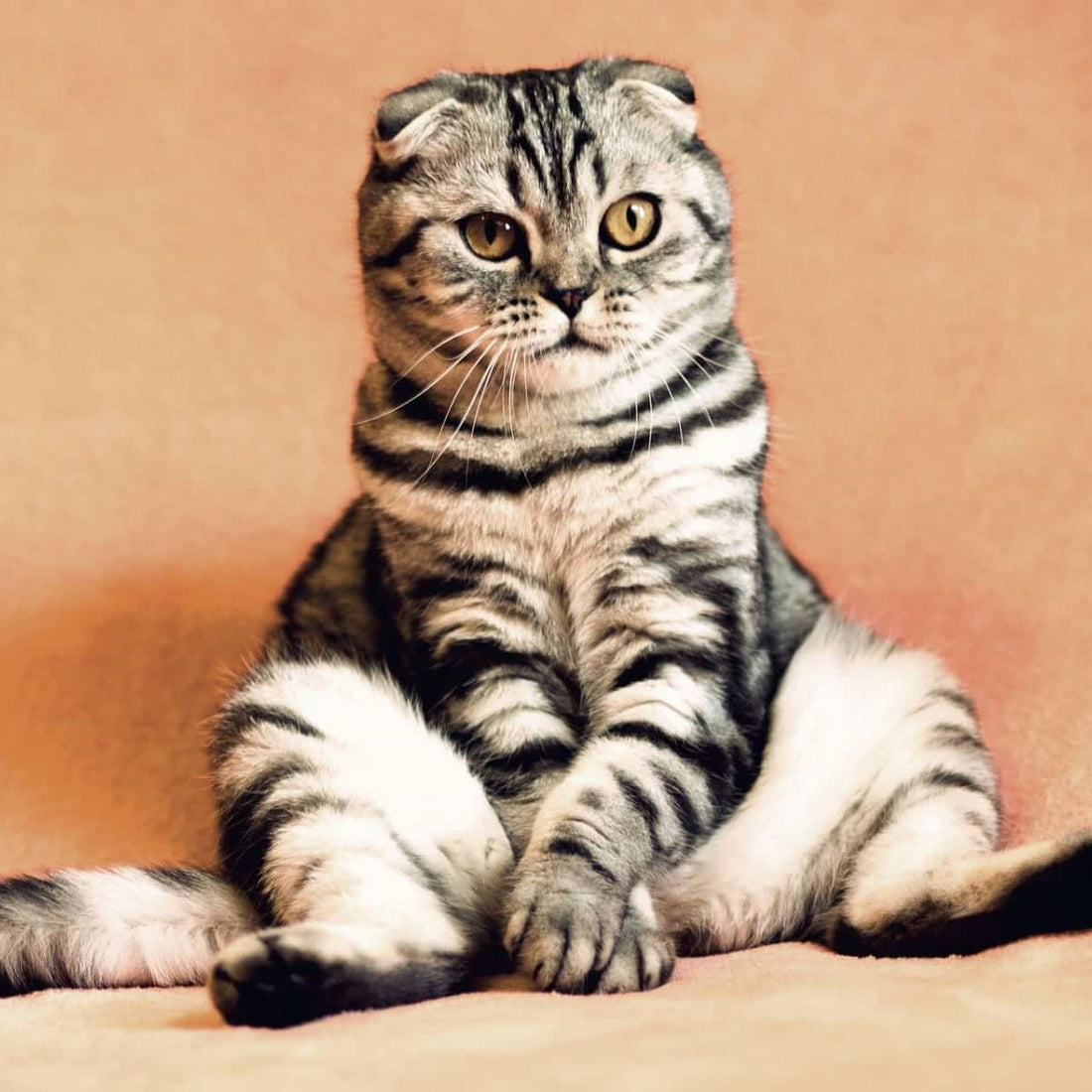Sign your cat has anxiety

Image source: bladeonline
Excessive Grooming
Cats are known for their fastidious grooming, but licking themselves raw or bald is a clear sign that your kitten has anxiety symptoms.
Diarrhea, Constipation or other Digestive Issue
These symptoms might indicate other issues but it’s always to be safe and take your cat to a vet.
Isolation
Aloofness is second nature to cats. However, a cat should not be actively and constantly hiding from you and everyone else in the house.
Excessive Vocalization
Many find the tone of a cat "talking" quite soothing, but be wary of unusually long or recurring bouts of panicked meows — especially if your cat is not the typical "talker." If it does happen, take your cat to the veterinarian rather than try to crack the kitty language code.
Decrease in Appetite
Cats don't go on fasts or diets like we do so it's important to consult a veterinarian if your cat suddenly loses interest in cat food or stops eating altogether, it could be a sign that your cat is stressed out.
Aggression Towards Other Animals
Fights or aggressive actions towards household pets or other animals can be a sign of a stressed or sick cat. Consult your veterinarian or a veterinary behaviorist before the problem gets worse.
Most Common Causes That Make Your Cat Stress

Image source: Rover
Visitors
Your cat likes to feel in control of her environment and loves a routine. Visitors bring increased noise and activity, unfamiliar smells, curious children, and maybe even other animals, all of which can cause your cat stress.
A New Family Member or Pet
A new cat or dog or even a new baby can cause your cat stress. All of these require him to change his routine, and that can be tough.
Traveling
Traveling short distances (like to the vet) or long distances (road trip!) are all the same to your cat. Some cats may even just get stressed at the sight of a carrier.
Moving or Getting New Furniture
Moving to a new home will understandably cause stress. But did you know that simply getting a new piece of furniture or changing your furniture's location might be enough to stress out a cat?
A Change in Routine
A change in routine might also stress out your cat. For example, if you changed shifts at work, just being at home during different hours might cause your cat some insecurity.
How to help your cat more relaxed

Image source: Noble Pawtrait
Provide Hiding Spaces
Help your cat feel less stressed when guests come over. Let your cat hide away in an area separate from visitors until she's ready to emerge, so she can approach when it's comfortable for her.
Give Your Cat More Items for His "Territory"
Cats are territorial and need items they can call their own in order to feel more confident. Set up cat trees, cat condos, window perches, and beds your cat can "claim" as his.
Music to calm your stressed cat
Certain types of music are known to be especially effective for calming cats. When cats hear this kind of music, you can tell how quickly they relax – even fighting tom cats will calm down.
Playing relaxing music is also a good way of easing unknown or stressful situations. Prime examples are holidays like new year’s eve or long car trips – not very popular with many cats.
There is a special kind of music which is pleasant to cats’ ears – not surprisingly, it is the type of sound best suited for their highly sensitive feline ears.
Cats like to communicate in rather high frequencies, since they simply like the sounds that are – in most cases – an octave higher than the human voice.Anyone composing music for cats should therefore include instruments with a high pitch. Perfect are the violin, cello and electronic keyboard instruments – with these, also beginners have a good chance of achieving a good spot in the cats’ top ten.
Music for cats should never be too loud. Since cats have a much more sensitive hearing than humans, keep the volume down!
Aggressive sounds, repeating staccato rhythms and chords don’t sound right to your cat’s ear – they are definitely not techno, trash or heavy metal fans! – Stick to the headset to avoid stressing them out.
Classical music
Classical pieces are soothing not only for humans but also for cats. Tests have shown that music influences the vegetative nervous system which in turn controls the cardiovascular function. The kind of music we listen to even affects our blood pressure and breathing.
The soft, harmonious sounds also calm down our cats and lead to relaxed breathing and a well-balanced heartbeat – with some cats, even the pupils get smaller.
But which exact music has this effect? Not all cats like the same tunes – play a few pieces to your cat to find out about it’s taste. Here are some examples that should have a relaxing effect:
Johann Sebastian Bach - Goldberg-Variations (BWV 988)
Ludwig van Beethoven - Moonlight Sonata (op. 27, Nr. 2), Piano concerto No. 4 G-major (op. 58)
Frédéric Chopin - Impromptu (op. 66), Fantaisie - Impromptu (op. 66)
Claude Debussy - La Mer
Wolfgang Amadeus Mozart - Symphony No. 40 D-minor, 2nd movement
Maurice Ravel - Piano trio in A-minor
Camille Saint-Saëns - Symphonie Nr. 3 C-minor (op.78)
Natural sounds and frequencies
If you are looking for soothing music for your cat, also try playing natural frequencies and sounds. Natural sounds have a relaxing effect on both humans and cats.
A prime example is the sound of sea waves.
References:
https://www.petmd.com/cat/centers/nutrition
https://www.catsbest.eu/music-for-cats/
https://www.cnet.com/news/the-right-music-can-soothe-your-savage-beast-er-cat/
https://www.hillspet.com/cat-care/healthcare/cat-anxiety
https://www.thesprucepets.com/stress-in-cats-552164

